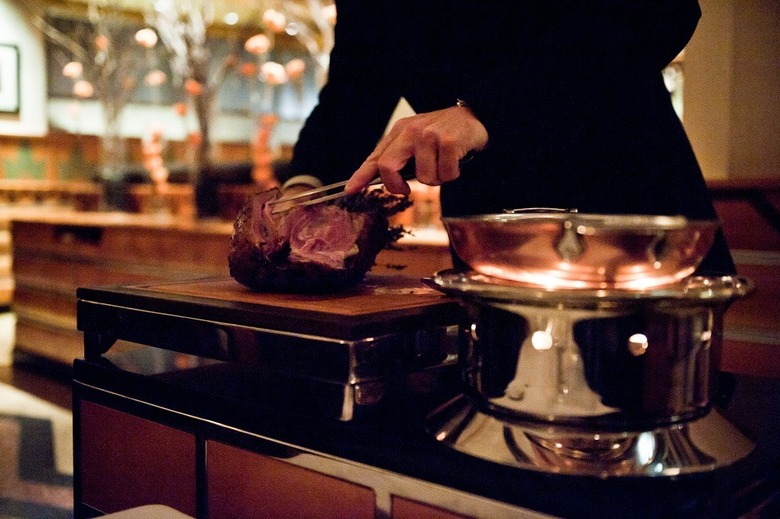Former Eleven Madison Park Employee Sheds Light On The Shadowy Deception Of Fine Dining
An op-ed published this weekend in The New York Times Sunday Review reveals some dark truths about the world of fine dining that, for the most part, the industry has been very careful to hide.
For starters, the former captain — the leader of a standard four-person service team assigned to a particular section of the dining room — shares, there are times when restaurant has purposely overbooked itself to bring in more money, so the entire team's job is to make you eat a little faster than you might normally.
According to his LinkedIn profile, the writer, Edward Frame, was once a part of the team at Eleven Madison Park, the three Michelin-starred restaurant from Daniel Humm and Will Guidara.
Frame, who rose through the ranks quickly, possessed a deep understanding of how to work the "nightly grotesquerie," from the staff's ongoing game of trying to sell a bottle of wine with the least useful adjectives possible, like "haunted," to the knowledge that he was essentially "an overpaid chaperone wearing a bespoke suit." Among his memories, "Grown men wearing Zegna and Ferragamo would sit at the bar chanting, 'We are the 1 percent!'"
And his job, along with the rest of the staff, was to create a fantastical world where money made everything beautiful. When a duck was brought to a patron for tableside carving, for example, it was the captain's job to carve ambidextrously instead of ever moving the bird, lest the guest see the animal's cavity.
During a particularly memorable evening, a regular patron — whose standard order was lobster, followed by duck — abruptly collapsed of a stroke, and Frame was told by his manager, "I'm going to go turn the music up. Just keep going." A Champagne cart was pushed in front of the fallen guest, so as not to disturb any of the other diners.
Frame, who left the restaurant shortly after the incident, has never looked back, and he ends his exposé with a note of caution: "As the regular's wife used to say when he ordered his usual lunch, 'eating like that is bad for you.'"
